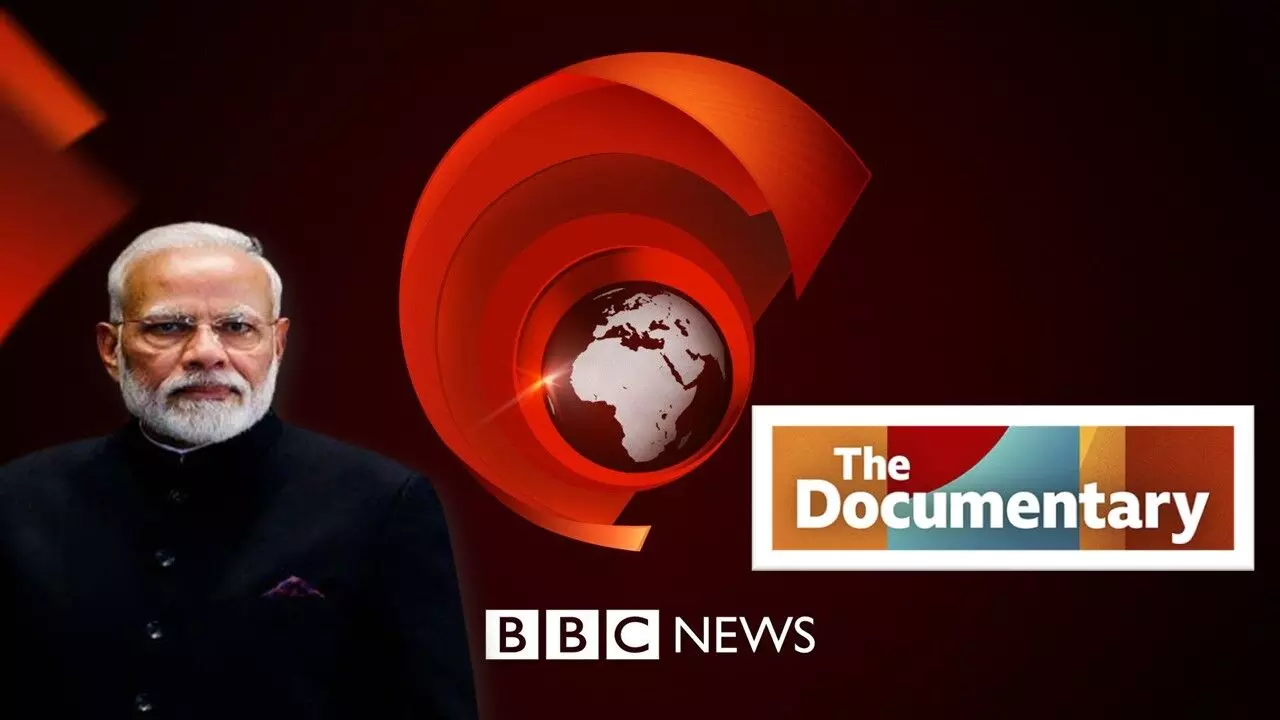
JNU goes dark for 3 hours; students allege bid to stop BBC documentary
text_fieldsNew Delhi: Jawaharlal Nehru University went dark around 8.30 p.m., only 30 minutes before the Students' Union was scheduled to show the first of the two-part BBC documentary, "India: The Modi Question," which was taken down by YouTube and Twitter on orders from the Center.
A group of students viewed portions of the documentary on their phones and computers to protest what they claimed was a purposeful blackout. Electricity was only restored just after midnight.
Satish Chnadra Garkoti, University Rector 1, and JNU Vice Chancellor Santishree Pandit were unavailable for comment. Ravi Kant Sinha, the deputy registrar, claimed he was not authorised to remark.
“We have been told by the JNU V-C and the university Registrar that it’s a massive power failure which has affected one-third of the campus. There is no deliberate attempt to cut power,” said an official in the Union Education Ministry.
However, reports claimed that a campus power outage of this length was unprecedented. The campus's electricity provider, BSES, made no note of the interruption on its website; the most recent listing for a "maintenance outage" in the area was for one that occurred between 11 am and 3 pm, Indian Express reported.
A Master’s student stated, “We had no electricity or internet in the hostels. We had reached out to our warden but got no response.”
Many professors told that faculty housing was also impacted by the power outage.
JNUSU president Aishe Ghosh was captured on camera waving a piece of paper containing a QR code.
“If they shut down one screen, we shall switch on hundreds,” she is heard saying.
Speaking later, she said: “JNU held screenings of movies like The Kashmir Files but we never got an advisory from the administration. This is happening for the first time.” She added that whenever there was a power cut, the campus community was “notified” by the administration “but this time we got no notice.”
Around 10.30 p.m., some stones were hurled at the group of students who had gathered to see the documentary, but it was difficult to tell where they had come from in the dark.
A PhD candidate from the Centre for Political Studies claimed that not only had other people been injured, but he had also been hit in the shoulder. The students then marched to the main gate and protested till around 11:30 p.m.
DCP (Southwest) Manoj C responded to questions on the power outage and stone-throwing by saying, “If we receive a complaint from any section of JNU, necessary legal action as deemed appropriate will be taken.”
There were two PCR vans parked outside the university gate at a little after 11 o'clock.
The university administration had warned students not to proceed with the screening on Monday. In a statement, it said: “No prior permission for this event has been taken from the JNU administration. This is to emphasise that such an unauthorised activity may disturb the peace and harmony of the university campus. The concerned students/individuals are firmly advised to cancel the proposed programme immediately failing which strict disciplinary action may be initiated as per university rules.”
In response, the students’ union said: “The screening is a voluntary action by the students… Can you please specify the provision of the JNU Act/Statute/ Ordinances/ Rules and Regulations governing the University which mandates that prior permission is required from the administration for screening of any film/documentary on the university premises?”
They added: “By screening the documentary/movie, we do not seek to create any form of disharmony. The purpose of the screening is only to watch the documentary on campus. Only the students with voluntary interest would take part in the screening.”
Government officials claimed the documentary had “the potential to adversely impact” the country’s “friendly relations with foreign states” and “public order within the country”. The BBC documentary focuses on PM Narendra Modi's response to the riots in Gujarat in 2002 and that of his state government at the time.





